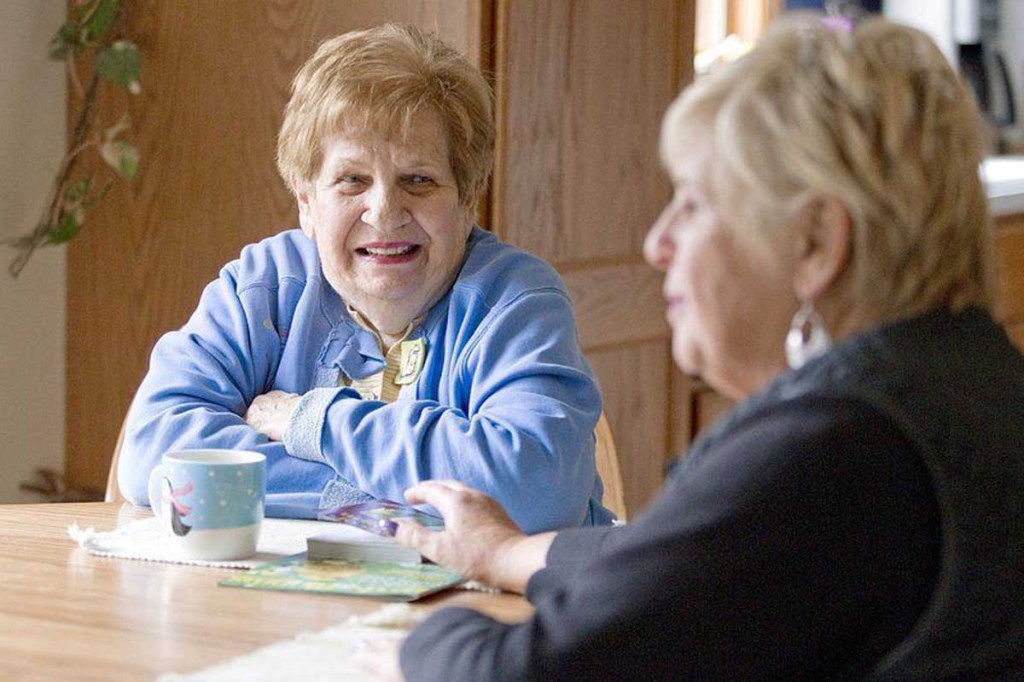Program helps families coping with dementia, memory loss
Published 10:00 am Sunday, March 27, 2016

- Mary Louise York, left, listens to her daughter, Laurie Anderson, talk while at her home in Traverse City. York was initially diagnosed with dementia three years ago and receives care from her family as the condition progresses.
TRAVERSE CITY, Mich. — When Laurie Anderson looks at her mother, she still sees the same caring face that helped shape her into the woman she is today. But she knows their relationship isn’t the same. It never will be.
The Michigan woman, over the last three years, transitioned from a daughter to a caregiver. Her 88-year-old mother, Mary Louise York, was diagnosed with mid-stage dementia last year and Anderson knew she needed to prepare herself for the condition’s inevitable progression.
Dementia is the overall term used to describe different symptoms associated with the disease alzheimer’s. Dementia affects the brain by contributing to memory loss, verbal communication and behavior according to the Alzheimer’s Association.
The Creating Confident Caregivers class was launched in northern Michigan in 2009. More than 5,000 caregivers have completed the six-week program statewide since its inception, with nearly 400 of those people residing in northwest Michigan.
Anderson, along with her son Ryan and husband Rick Wilkins, the family last summer enrolled in an Area Agency on Aging of Northwest Michigan class designed to help people in their situation. The trio didn’t have any experience with caring for those with dementia, she said, so she started making calls for help. And the AAANM was one of those calls.
Anderson said the class lives up to its name. The trio each said they’ve each made positive strides in providing the best care they can for York. More importantly, the family has a better sense of understanding and ability to enjoy what time they have left together, Anderson said.
AAANM officials say stepping back from the situation and reassessing individual needs is a pillar of the program. Sometimes simply taking a moment to appreciate what you have left can be instrumental to providing the best care, Healthy Aging Program Coordinator Darcia Brewer said.
“They can still enjoy life,” she said. “We can still involve them in activities, but we can’t expect so much of them where you’re overwhelmed. It’s about asking, ‘What can you expect? And what can you do to keep them occupied and content?’”
With the help of the class, Anderson said she and her family are now able to tap into that beauty.
“(Dementia) can be very confrontational with a lot of anger,” Anderson said. “If they’re handled properly, you can get beneath what’s agitating that. That’s something I learned. You can get past that and care for them properly.”
Kaminski writes for the (Michigan) Record-Eagle.





